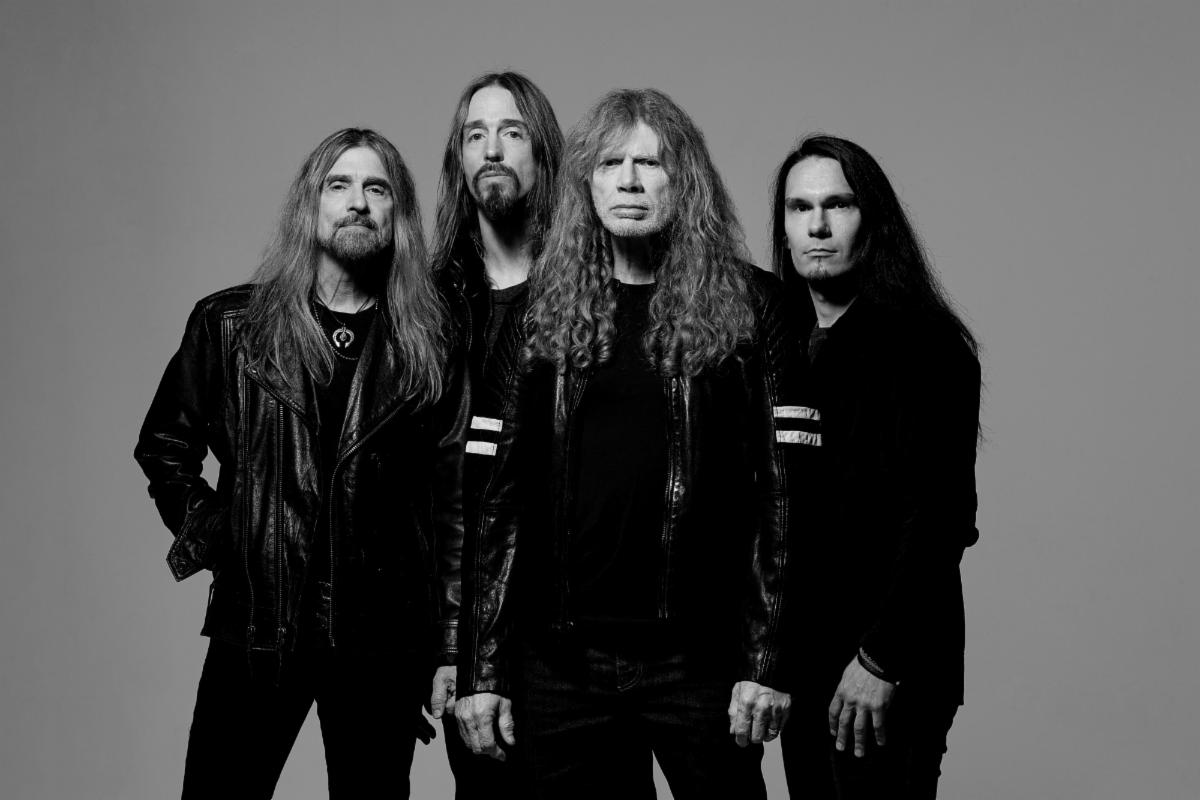
Back in 1986, when big hair, neon spandex, and power ballads ruled MTV, Megadeth dropped an album that sounded like it wanted to punch the decade right in the face. “Peace Sells… But Who’s Buying?” wasn’t here to make friends, it was here to make noise. And wow, did it ever. Almost 40 years later, it still feels dangerous, defiant, and deliriously good.
This was the record where Dave Mustaine, who is retiring Megadeth soon, fresh out of his Metallica heartbreak, turned bitterness into brilliance. The album snarls with attitude and genius, balancing social fury with jaw-dropping musicianship. It’s political, it’s personal, and it’s played at about a thousand miles an hour. It’s sad this band is retiring, but they’ve had a great run.
Thrash, but Make It Art
The lineup, Mustaine, Chris Poland, David Ellefson, and Gar Samuelson, had the perfect mix of talent and chaos. The riffs? Sharper than a switchblade. The solos? Faster than your ex’s excuses. And the rhythm section? A thundering pulse that still makes walls tremble.
This album didn’t just define Megadeth, it helped define thrash metal itself. It’s smart, fiery, and just a little scary, like the cool kid at the party who knows too much about nuclear war.
Classic Album Review: Megadeth, “Peace Sells… But Who’s Buying?”
Track by Track: A Guided Tour Through Mayhem
“Wake Up Dead” kicks things off like a caffeine overdose. No warm-up, no warning, just a full-speed confession about cheating, paranoia, and regret. The riffs twist like a runaway train, and Mustaine sounds like he’s trying to out-shred his own guilt. It’s messy, manic, and perfect.
Then comes “The Conjuring,” a slow creep into darkness that feels like a horror movie set to double-kick drums. Mustaine once swore off playing it live (something about satanic themes), but it remains one of the most hauntingly clever songs in their arsenal.
By the time “Peace Sells” starts, it’s game over. That opening bass line? Iconic. Ellefson’s fingers basically created an anthem before Mustaine even opened his mouth. And when he does, with that sneering, half-sarcastic “What do you mean I don’t believe in God?” the whole song explodes. It’s protest music disguised as a mosh pit, a masterclass in anger with a groove you can actually dance to. (By the way, both Mastaine and Ellefson are Christians, to the best of our knowledge.)
“Devil’s Island” brings speed and menace, thrashing through tales of punishment and isolation. It’s one of those songs where you can feel the sweat dripping off every cymbal hit. It’s frantic, melodic, and gloriously unhinged.
Then there’s “Good Mourning/Black Friday,” arguably the album’s darkest moment. It starts as a soft, ghostly lullaby before turning into a metal massacre. It’s unrelenting, full of violence and virtuosity, and proves that Megadeth could paint with every shade of heavy.
“Bad Omen” keeps the chaos rolling. It’s creepy, it’s occult, and it moves with this seductive menace, like a demon in ripped denim. The rhythm swings between lurking tension and explosive release, showing off the band’s uncanny control of mood.
When “I Ain’t Superstitious” arrives, things take a bluesy detour. It’s a Willie Dixon cover, but Megadeth turns it into something mean and swaggering. Sure, it doesn’t quite match the rest of the record’s ferocity, but it’s the album’s one smoky grin, a little wink before the final blast.
And that blast? “My Last Words.” It’s the perfect closer, a deadly game of Russian roulette played over galloping riffs and sky-high solos. It’s tragic, cinematic, and weirdly beautiful, ending the album in pure chaos and adrenaline.
A Sound That Stuck
What makes “Peace Sells… But Who’s Buying?” timeless isn’t just the riffs or the speed, it’s the brains behind the brutality. Mustaine’s lyrics don’t just rage, they cut. The record calls out hypocrisy, politics, and human self-destruction with sarcasm and fire. It’s thrash metal, but it’s also social commentary.
And that title track? It basically became the soundtrack to rebellion. MTV even used its bass line for “The Headbangers Ball” intro, ironic, since the song was mocking media control and consumerism. That’s the kind of cultural bite that keeps this record relevant decades later.
The Flaws That Make It Perfect
Is it pristine? Nope. Some mixes are muddy, and Mustaine’s vocals are more snarl than sing. But that’s the point. This isn’t metal that got cleaned up for radio, it’s metal that sounds like a Molotov cocktail thrown at conformity.
“Peace Sells… But Who’s Buying?” is the moment Megadeth found its true identity, technical, confrontational, and unafraid to make listeners uncomfortable. The album didn’t just compete with Metallica, Slayer, and Anthrax, it helped define the Big Four.
It’s impossible to overstate how much this record influenced modern metal. The precision, the tempo shifts, the audacity, it all paved the way for future generations of heavy music. And it still sounds as ferocious today as it did blasting out of cassette decks in 1986.
If metal albums were cocktails, “Peace Sells… But Who’s Buying?” would be a double shot of whiskey with a spark plug dropped in for flavor. It’s fast, dangerous, and leaves a burn that lingers. The riffs are immortal, the lyrics prophetic, and the attitude? Unmatched.
This isn’t just one of Megadeth’s best records, it’s one of the greatest metal albums ever made. It’s smart, angry, stylishly chaotic, and somehow still sexy in that “I’ll destroy you with my guitar” kind of way.
“Peace Sells… But Who’s Buying?” doesn’t ask for your approval. It doesn’t need it. It just kicks the door in, throws down a riff, and dares you to keep up.
- Megadeth Classic “Peace Sells… But Who’s Buying?” Still Bites Hard - October 11, 2025
- 3 Underrated Beastie Boys Songs That Need More Love - October 7, 2025
- Nirvana’s Greatest Songs That Weren’t on ‘Nevermind’ - October 3, 2025
